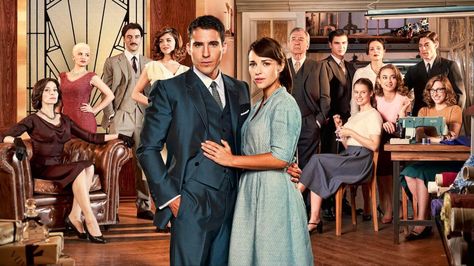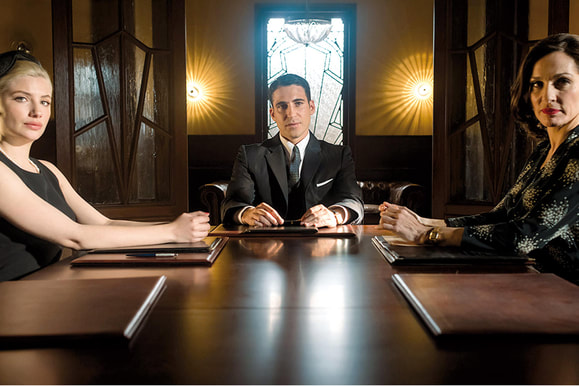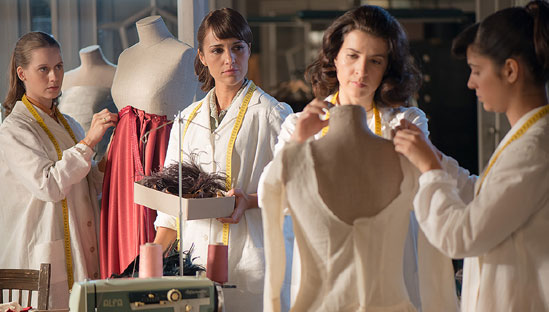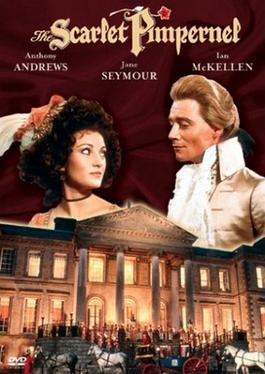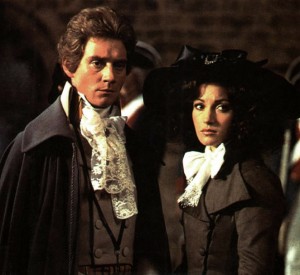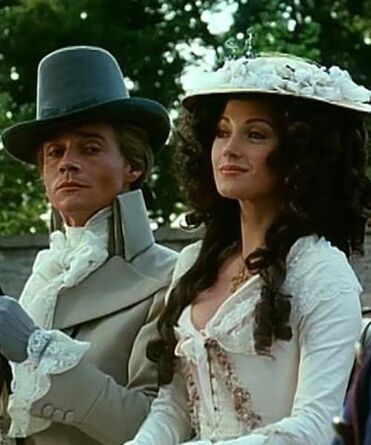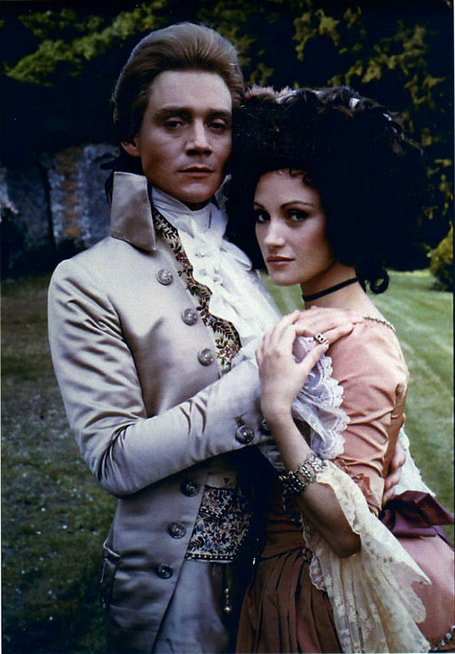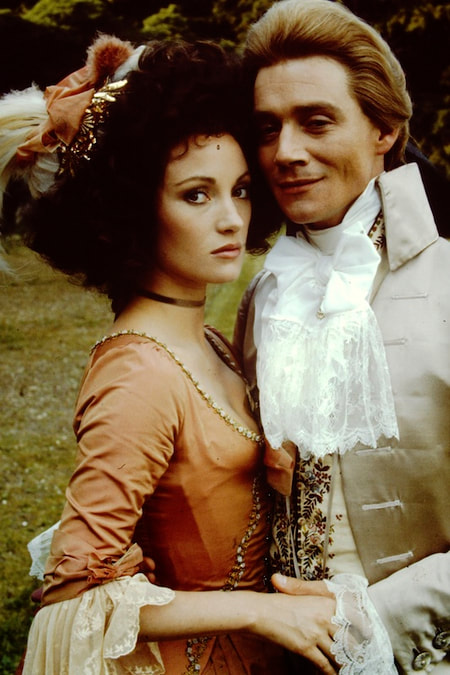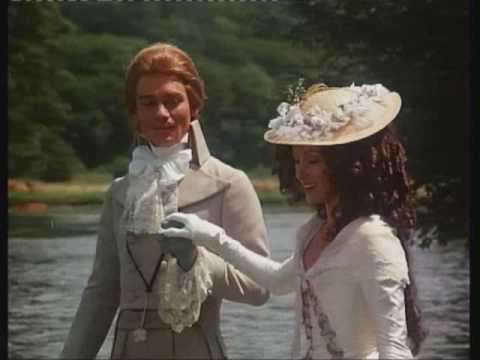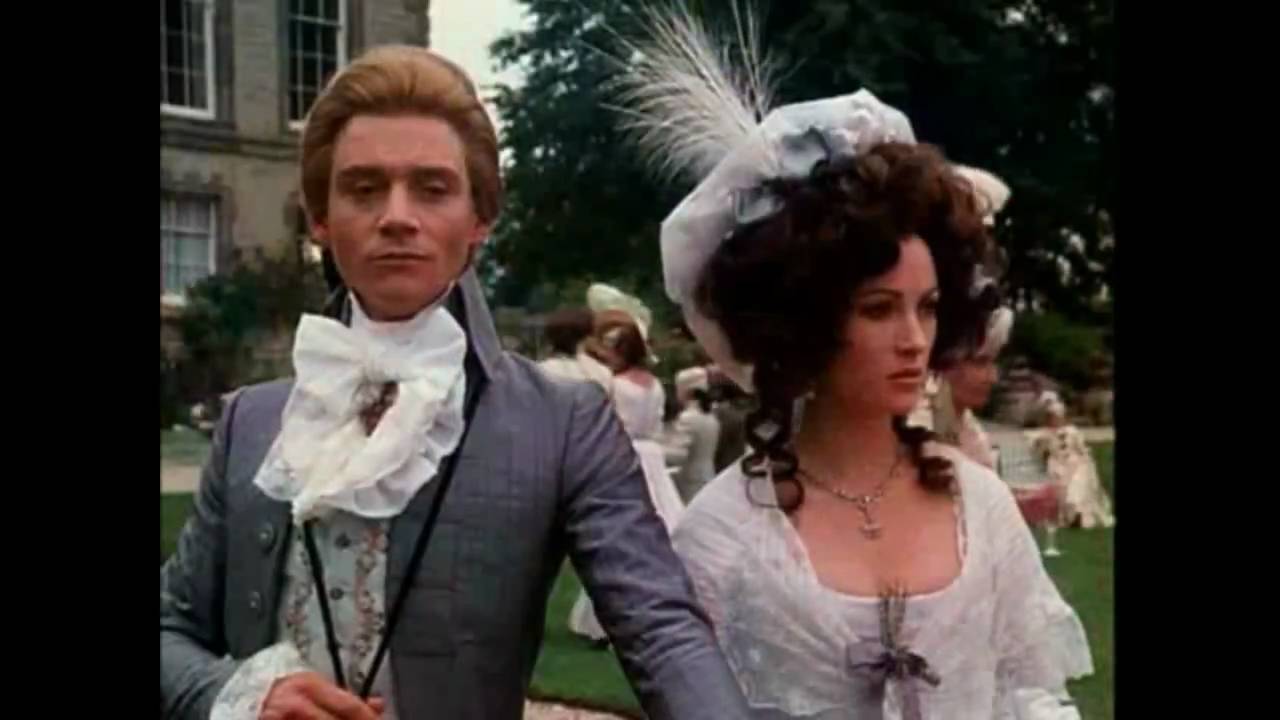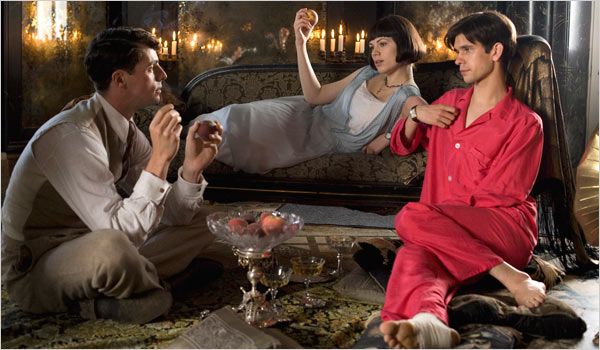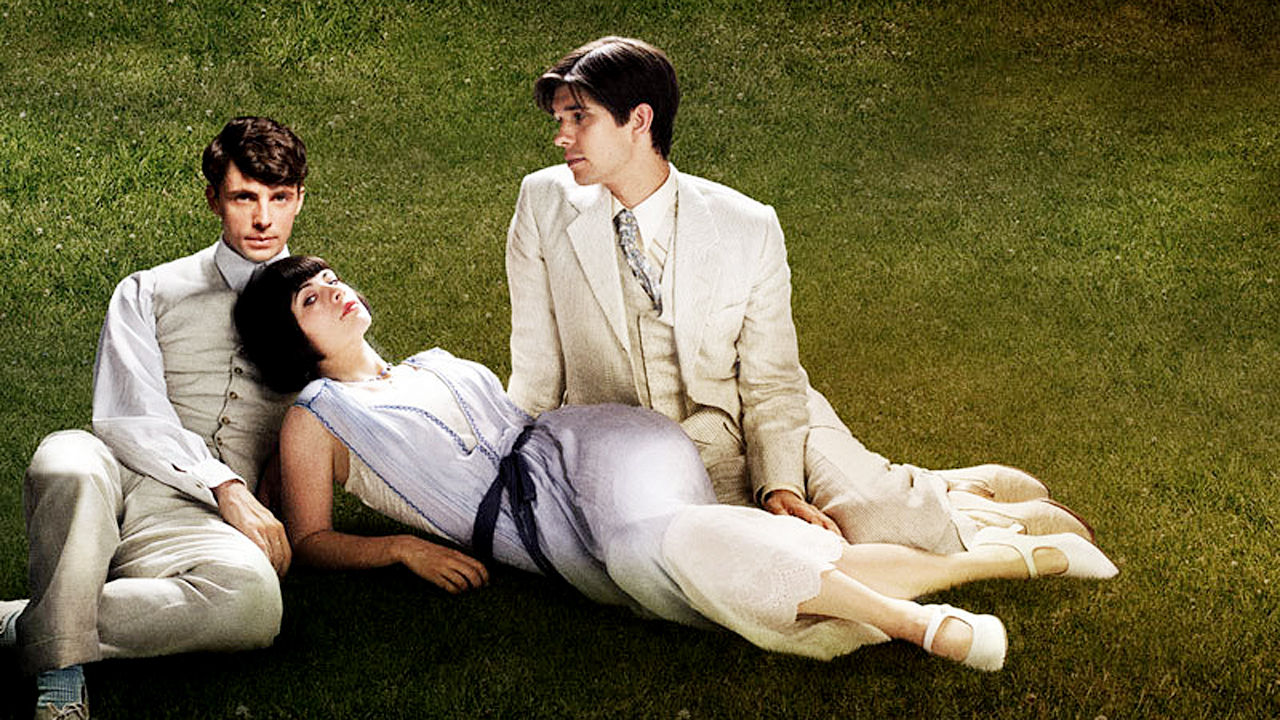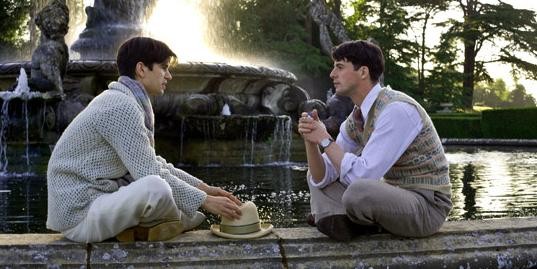|
Year: 2013-2016 Writer: Ángela Armero, Carlos Portela Director: David Pinillos, Carlos Sedes Music: Lucio Godoy Costume design: Helena Sanchis Stars: Paula Echevarría, Miguel Ángel Silvestre, Javier Rey, Asier Etxeandía, Amaia Salamanca Country: Spain Language: Spanish SpanishVelvet (inicialmente llamada Galerías Velvet) es una serie de televisión española creada por Ramón Campos y Gema R. Neira y producida por Bambú Producciones para Antena 3. En la España de 1958 hay un lugar al que todo el mundo desearía ir de compras al menos una vez en la vida: las Galerías Velvet. Ubicadas en el número 34 de la Gran Vía madrileña, entre sus paredes se encuentran los trajes más elegantes, sofisticados y caros del momento, pero sobre todo se esconde una de las más maravillosas historias de amor que se haya contado jamás: la de Ana y Alberto. Ella, una humilde costurera que trabaja en las galerías desde que era niña. Él, un joven y apuesto muchacho destinado a heredar el majestuoso imperio de la moda que hasta ahora gobierna su padre, Don Rafael Márquez. Entre finas telas y vestidos de alta costura que evocan una vida de ensueño, ambos están dispuestos a romper con las normas de la época y vivir su amor más allá de lo que piensen los demás y de los que traten de impedirlo. EnglishVelvet (also known as Galerías Velvet) is a Spanish drama television series created by Ramón Campos and Gema R. María and produced by Bambú Producciones for Antena 3. The main storyline of the show is the love story of Alberto Márquez (played by Miguel Ángel Silvestre), heir of Galerías Velvet, one of the most prestigious fashion houses in the Spain of the late 1950s, and Ana Rivera (Paula Echevarría), who works as a seamstress there. Further interestVideo Watch full episodes on Amazon Prime Others Production company: Bamboo Productions
0 Comments
The Scarlet Pimpernel is a 1982 British romantic adventure television film set during the French Revolution. It is based on the novels The Scarlet Pimpernel and Eldorado by Baroness Emmuska Orczy, and stars Anthony Andrews as Sir Percy Blakeney/the Scarlet Pimpernel, the protagonist, Jane Seymour as Marguerite St. Just, the love interest, and Ian McKellen as Chauvelin, the antagonist. In 1792 during the Reign of Terror, the Scarlet Pimpernel rescues French aristocrats while posing as the wealthy but foppish and seemingly empty-headed Sir Percival Blakeney. Percy marries the beautiful French actress Marguerite St. Just, but her previous relationship with Robespierre's agent Armand Chauvelin may endanger the Pimpernel's plans to save the young Dauphin, eldest son of the former King of France. The story differs from the book but is largely inspired by it. Plot: In 1792 during the Reign of Terror of the French Revolution, a secret league of brave Englishmen are rescuing French aristocrats from the guillotine. The leader of this secret society is a mysterious English nobleman known only as the Scarlet Pimpernel, whose signature sign is a humble wayside flower. In society he hides his identity by posing as the wealthy but foppish and seemingly empty-headed Sir Percy Blakeney. After rescuing the Count de Beaulieu and his family, Percy is introduced to the beautiful French actress Marguerite St. Just through her brother, Armand, whom he rescued from an attack. Percy is attracted to Marguerite, but she is in a relationship with Armand Chauvelin, an agent of Maximilien Robespierre. Due to the Scarlet Pimpernel's past successes, Chauvelin is assigned to discover his identity and capture him. After Percy and his associates smuggle another aristocrat out of the city while picnicking with Marguerite, Chauvelin deduces that the Scarlet Pimpernel must be an English nobleman, and tries to coerce the Count de Tournay to spy on the English court for the Republic. Later, Marguerite and Chauvelin have an argument over the executions and he angrily departs. Percy reveals his identity to Armand and convinces him to use his connections to Chauvelin to investigate the French prison holding the Dauphin, son of the former King of France. Soon after, the Scarlet Pimpernel and his associates rescue de Tournay's family. Following a passionate courtship, Percy marries Marguerite, but soon their happiness is interrupted when he discovers that she apparently signed the arrest warrant of the Marquis de St. Cyr and his family, the man responsible for the previous attack on Armand. This leads to beheadings of the entire St. Cyr family. Believing that she was seeking revenge and is still in league with Chauvelin, Percy becomes distrustful of his new wife. Unaware of her husband's knowledge of her extorted role in the deaths of the St. Cyr family, Marguerite unhappily notices his growing disdain for her and for married life. Armand advises Percy to tell Marguerite about his suspicions so that she may defend herself, but Percy refuses, even though he admits he will love her until the day he dies. Soon after, Chauvelin discovers that Armand is in league with the Scarlet Pimpernel, and summons him back to Paris. Blackmailing Marguerite by threatening her brother's life, Chauvelin coerces her into discovering the vigilante's identity. After finding that the Scarlet Pimpernel is to rendezvous at midnight, Marguerite tells Chauvelin. However, she immediately warns the Scarlet Pimpernel—actually her husband, unbeknownst to her—and adds that Chauvelin betrayed her trust and faked her signature. Percy's faith in his wife is restored. Having been thwarted from encountering them, Chauvelin angrily leaves for Paris. Percy and his associates also depart for France to save Armand and the Dauphin. Marguerite notices that Percy's family crest bears a scarlet pimpernel, and quickly deduces his identity. After Armand arranges the firing of the gaolers in charge of the Dauphin's care, Percy and his associates use the removal of their belongings to smuggle the Dauphin out of the city. The boy is taken to a castle on the French coast, but Percy is soon captured while trying to save Armand. Marguerite visits her husband in prison, where he tells her to arrange for the Baron de Batz—an Austrian interested in saving the Dauphin—to smuggle the boy out of France the following night. Later, Percy agrees to personally bring Chauvelin to the Dauphin. Chauvelin and Percy, along with Marguerite and Armand who are hostages, arrive at the castle, but the Dauphin has already been removed. Angered by the deception, Chauvelin orders Percy's execution, but the firing squad consists of members of the league of the Scarlet Pimpernel, disguised as Chauvelin's troops. Percy is rescued and returns to duel with Chauvelin, and is victorious. Percy decides to leave Chauvelin's fate to Robespierre. Impersonating Chauvelin to ensure their escape, Armand departs from the castle along with the French troops that Chauvelin had stationed there. Percy and Marguerite sail away, happily in love. Cast:
Production: The Scarlet Pimpernel is based on a novel written by Baroness Emma Orczy. The 1982 adaptation was produced by London Films and directed by Clive Donner. Filming took place at various eighteenth century sites in England, including Blenheim Palace, Ragley Hall, Broughton Castle, and Milton Manor; also Lindisfarne. Tony Curtis served as the film's designer. The film was expanded to three hours to allow time for the addition of a subplot and extra characters. The subplot, taken from another of Orczy's novels, detailed the successful rescue of the Dauphin from a French prison.
Anthony Andrews had recently won the BAFTA for Best Actor for his performance in the 1981 serial Brideshead Revisited, and was cast as Sir Percy Blakeney/Scarlet Pimpernel. In addition to that serial, Andrews was also known to American audiences through the PBS ITV& BBC shows Danger UXB and The Duchess of Duke Street as well as several other productions. London Films hoped that this popularity would lead to Andrews starring in a Scarlet Pimpernel series in the US, but this never occurred.Other cast members included Ian McKellen and Jane Seymour. The recipient of a Golden Globe nomination for East of Eden, Seymour was cast as Marguerite St. Just. She later played Marie Antoinette in the 1989 film La Révolution française. Brideshead Revisited is a 2008 British drama film directed by Julian Jarrold based on the 1945 novel of the same name by Evelyn Waugh, which previously had been adapted in 1981 as the television serial Brideshead Revisited. Directed by: Julian Jarrold Screenplay:
Starring
Music: Adrian Johnston Cinematography: Jess Hall Release date
Running time: 133 minutes Country: United Kingdom Language:
Plot:
Although he aspires to become an artist, middle-class Charles Ryder reads history at the University of Oxford, where he befriends the flamboyant and wealthy Lord Sebastian Flyte. Sebastian's mother, Lady Marchmain, strongly disapproves of Sebastian's lifestyle, especially his heavy drinking. When Sebastian takes Charles home to visit his nanny, Charles is enthralled by the grandeur of the Marchmain family estate, known as Brideshead, and he is entranced by its residents, including the devout Roman Catholic Lady Marchmain and her other children, Sebastian's elder brother Bridey and his sisters Julia and Cordelia. When Lord Marchmain invites Sebastian and Julia to visit him and his mistress Cara in Venice, Lady Marchmain encourages Charles to go with them in the hope that he can act as a positive influence on her son. Increasingly interested in Julia, Charles surreptitiously kisses her in a dark alley, unaware that Sebastian can see them from the other side of a canal. Jealous of his attention to his sister, Sebastian sets out to end their friendship, and on their return to Britain, Lady Marchmain makes it clear that Charles cannot marry Julia since he professes to be an atheist. Sebastian's mother, concerned about his increasing alcoholism, cancels his allowance. During a visit to Brideshead, Ryder gives Sebastian money, which he uses to buy alcohol. Later that day, at a party given by the family, Charles is shocked when Lady Marchmain announces that the celebration is in honor of Julia's engagement to Canadian business man Rex Mottram. Sebastian arrives at the party late and improperly dressed. After a scene that is very embarrassing to Lady Marchmain, Sebastian flees the party, and Lady Marchmain privately dresses down Charles because he gave Sebastian money, and tells him that he is no longer welcome at Brideshead. Sebastian flees to Morocco. Four years elapse. Lady Marchmain has become terminally ill. She asks Charles to find Sebastian and bring him home. Charles travels to Morocco, but Sebastian could not return even if he wanted to, which he clearly does not. He is in the hospital with fluid in one of his lungs, and the doctor warns Charles that Sebastian is too ill to travel. More time elapses. Julia marries Rex, and Charles marries as well, and becomes successful as an artist. Charles is reunited with Julia on an ocean liner travelling to Britain from New York. They immediately realise they are still in love and decide to leave their respective spouses and live together. Charles and Julia return to Brideshead, where Charles plans on asking Rex to step aside so he and Julia can be together. Rex first implies he will never let Julia go, and accuses Charles of just wanting the estate. However, he then relents and agrees to release her in exchange for two of Charles's paintings, which are now viewed as a good investment. He also reveals that he converted to Catholicism to get Julia, and he disdains Charles for not having been willing to do the same. Julia overhears all of this, is shocked and angered, feeling like bartered goods. Their arrangements made, Charles and Julia prepare to leave Brideshead. Just as they are driving out, however, they pass a small caravan of cars that are arriving: Lord Marchmain is terminally ill, and has returned with Cara so he can spend his final days in his home. On his deathbed Lord Marchmain, who hitherto has not wanted Catholicism, regains his faith and dies reconciled to the Roman Catholic Church. Deeply affected by her father's transformation, Julia decides she cannot relinquish her own faith to marry Charles, and the two sadly part. Several years later, the Second World War is in process. Charles, now a disillusioned army captain, finds himself once again at Brideshead, this time in its capacity as a military base. A corporal tells him Julia is serving in the reserves and that her elder brother, Bridey, died during the Blitz. We also learn that he is alone – he has no girlfriend or wife. In the movie's final scene, Charles visits the family chapel, where he finds a single lit candle. He dips his hand into holy water and moves to snuff out a candle that is almost out of wax. However, he then reconsiders, and leaves the flame to burn. Title: Brideshead Revisited Release time: 1981 Written by Evelyn Waugh (novel) Derek Granger et al. (script) Directed by Charles Sturridge, Michael Lindsay-Hogg Starring:
Country of origin United Kingdom Original language(s): English No. of series: 1 No. of episodes:11 Brideshead Revisited is a 1981 British television serial starring Jeremy Irons and Anthony Andrews. It was produced by Granada Television for broadcast by the ITV network. Most of the serial was directed by Charles Sturridge; a few sequences were directed by Michael Lindsay-Hogg. The serial is an adaptation of the novel Brideshead Revisited (1945) by Evelyn Waugh. It follows, from the 1920s to the early 1940s, the life and romances of the protagonist Charles Ryder—including his friendship with the Flytes, a family of wealthy English Catholics who live in a palatial mansion called Brideshead Castle.
The 11-episode serial premiered on ITV in the UK on 12 October 1981 and The Telegraph listed it at number 1 in its list of the greatest television adaptations, stating that "Brideshead Revisited is television's greatest literary adaptation, bar none. It's utterly faithful to Evelyn Waugh's novel yet it's somehow more than that, too." Plot episode by episode: Episode 1:"Et in Arcadia Ego" In the spring of 1943, disillusioned Army captain Charles Ryder is moving his company to a new Brigade Headquarters at a secret location he discovers is Brideshead, once home to the Marchmain family and the scene of both pleasant and anguished visits for the younger Charles. Seeing the house for the first time in several years prompts a recollection of Charles' first meeting with Lord Sebastian Flyte, the Marchmains' younger son, at Oxford University in 1922, and the rest of the narrative flashes back to that time forward. At Oxford, two young men quickly bond and, although his cousin warns him to avoid Sebastian and his inner circle of friends, Charles is fascinated by them, particularly the flamboyant and openly gay aesthete Anthony Blanche. Short on funds, Charles finds himself fitfully spending the summer holidays in London with his indifferent and rigid father Edward until an urgent message from Sebastian sends him to Brideshead, where Charles is introduced to a world of wealth and privilege dominated by a powerful devotion to Catholicism. Episode 2: "Home and Abroad" At Brideshead, Charles is introduced to Sebastian's younger sisters Julia and Cordelia and his older brother Brideshead ('Bridey'). The two young men decide to accept an invitation to Venice extended by Sebastian's father, Lord Marchmain, who lives there with his mistress Cara. Episode 3: "The Bleak Light of Day" Back at Oxford, Sebastian learns his mother has arranged for him to be tutored - and carefully supervised - by Mr. Samgrass. Lady Marchmain visits the university and implores Charles to be a good influence on her rowdy son. Invited to a charity ball in London by Julia, Charles and Sebastian escape to a seedy nightclub in Soho. After a drunken Sebastian crashes their car, the political and social power of ambitious MP Rex Mottram and Mr. Samgrass result in Sebastian being let off with only a fine. Episode 4: "Sebastian Against the World" Sebastian's rapid descent into alcoholism, which he refers to as dipsomania, leads him into constant trouble, despite the ever-watchful eye of Mr. Samgrass. During Easter holiday at Brideshead, Charles tries to reason with a constantly inebriated Sebastian, who accuses him of being a spy for Lady Marchmain. Sebastian's failure to reform leads to his dismissal from Oxford, and a bereft Charles returns to London to ask his father permission to leave the university in order to study art abroad. Episode 5: "A Blow Upon a Bruise" Charles returns from his art studies in Paris and journeys to Brideshead for the 1925 New Year's celebration. Sebastian has returned from an excursion to the Levant with Mr. Samgrass, but photographs of the holiday and comments made by the two clearly indicate Sebastian frequently went off on his own to satisfy his hedonistic needs. Sebastian agrees to participate in a fox hunt although he plans to make an early escape to a pub, so he asks Charles for money and his friend acquiesces. When Sebastian returns home heavily inebriated at the end of the day, a distressed Lady Marchmain questions Charles. Learning he financed Sebastian's drinking binge, she rebukes him for enabling him, and Charles leaves Brideshead, fully expecting never to return. Episode 6: "Julia" Charles returns to Paris, where he is visited by Rex Mottram, who is searching for Sebastian and the money he stole before he disappeared. Rex discusses the financial woes of the Marchmain family and announces he intends to marry Julia nonetheless. Lady Marchmain reluctantly consents to the marriage as long as Rex converts to Catholicism, a condition he is willing to accept. But when Bridey learns Rex has a former wife who is living, a situation the Church will not abide, he cancels the wedding, and a defiant Julia marries Rex in a Protestant ceremony her family, with the exception of Cordelia, refuses to attend. Episode 7: "The Unseen Hook" In May 1926, Charles returns to England to volunteer his services during the General Strike. While delivering milk in the East End, he encounters Boy Mulcaster. At a party they encounter Anthony Blanche who tells how Sebastian is living in Fez. Julia tells Charles her dying mother is anxious to make amends with her prodigal son, and he agrees to go to Morocco and bring him home. He discovers Sebastian has been living with Kurt, a German ex-soldier discharged from the French Foreign Legion after deliberately shooting himself in the foot. Sebastian is a chronic alcoholic and has been hospitalized with pneumonia. Charles finds his friend emaciated and dissipated, unwilling to follow doctor's orders, and disinclined to leave Kurt alone. Before Charles departs Morocco, he learns Lady Marchmain has died. Episode 8: "Brideshead Deserted" Bridey commissions Charles to paint four scenes of Marchmain House in London, which has been sold to rectify Lord Marchmain's financial difficulties, before it is demolished to make way for a block of flats. He is reunited with Cordelia, who regrets the ongoing dissolution of her family but assures Charles she continues to find strength in her faith. Cordelia recalls her mother’s reading of a Father Brown story where G. K. Chesterton’s priest catches a thief "with an unseen hook and an invisible line which is long enough to let him wander to the ends of the world and still to bring him back with a twitch upon the thread". Time passes and Charles spends two years in Mexico and Central America painting, then has an awkward reunion with his wife Celia in New York City before the two sail home. On board ship, the two discover Julia is a fellow passenger. Episode 9: "Orphans of the Storm" Celia is bedridden with chronic seasickness prompted by extremely rough seas, leaving Charles and Julia to become reacquainted, and the two become lovers before reaching Southampton. Back in London, at an exhibition of her husband's latest artwork, Celia implies she knows about his affair with Julia. Anthony Blanche arrives at the gallery late and invites Charles to join him for a drink in a seedy gay bar, where he criticizes his talent and paintings, and informs Charles that his affair with Lady Julia is already widely rumored. Charles and Julia depart for Brideshead, where Rex is awaiting his wife. Episode 10: "A Twitch Upon the Thread" Charles and Julia, awaiting their respective divorces, live together, unmarried, at Brideshead. When Bridey announces his engagement, Julia suggests he invite his fiancée to Brideshead. Bridey points out that a highly moral and staunchly Catholic woman with middle-class values would never sleep under the same roof as a couple "living in sin". Bridey's comments stir extraordinary feelings of remorse and pain in Julia, revealing her long-standing Catholic guilt to Charles. Cordelia returns from ministering to the wounded in the Spanish Civil War with disturbing news about Sebastian's nomadic existence and steady decline over the past few years. She predicts he will die soon in the Tunisian monastery he has taken shelter in as his alcoholism consumes him. Episode 11: "Brideshead Revisited" In 1939, World War II is imminent. After years of self-imposed exile in Venice, the terminally ill Lord Marchmain decides to return home to die. Appalled by Bridey's choice of a wife, he announces he plans to leave Brideshead to Julia and Charles. When Bridey brings a priest to visit his very weak father and perform the last rites, Charles objects vocally, and offends Julia by harping on the question of what the sacrament actually accomplishes and what rationale there could be for performing it, especially knowing Marchmain's aversion to Catholicism. Lord Marchmain sends the priest away, then meets with his lawyers to change his will. But as Lord Marchmain weakens to the point of semi-consciousness, he finally accepts by making the sign of the Cross the absolution conditionally pronounced by the priest. Tearfully, Julia calls off her marriage to Charles, because she does not wish "to set up a rival good to God’s". She explains to him "that if I give up this one thing I want so much, however bad I am, He won't quite despair of me in the end". Charles, who has been moved by Lord Marchmain's final re-conversion, understands, but it breaks his heart, too. The narrative returns to Brideshead in 1944. Charles, now a believer, visits and prays in the reopened chapel, which has been closed since Lady Marchmain's death in 1926. A twitch upon the thread has brought him to the Faith. The sanctuary lamp, its symbol, burns anew. |
Categories
All
Archives
October 2023
|
